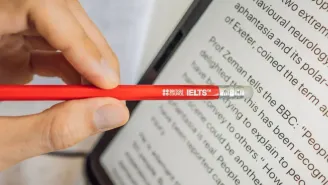How to Answer Honesty is the Best Policy Essay
To answer these questions in the IELTS writing task, you must start with the introduction, give an opinion about the topic, and provide concluding remarks to conclude your topic. For the same, the detailed breakout is provided for the topic: honesty is the best policy is given below:
Introduction (2-3 sentences):
- Start your essay with a clear introduction using simple language.
- The tone should be neutral, and the vocabulary should be easy to understand.
- State your position clearly by saying whether you agree or disagree with the statement.
- Avoid using overly complex words.
Example: ‘Being honest is super important. In this essay, I'll explain why honesty is the best way to go.’
Body Paragraphs: Supporting Perspective - Honesty is the Best Policy:
- Use clear and concrete examples in simple language to illustrate the benefits of honesty.
- Employ a positive tone and straightforward vocabulary. Explain concepts without unnecessary complexity.
- Focus on relatable situations that showcase the positive outcomes of honesty.
Example: “Honesty is great because it builds trust. When you're honest, people trust you more, making relationships stronger.”
Body Paragraphs: Opposing Perspective - Honesty has Limitations:
- Introduce this paragraph by acknowledging that while honesty is generally positive, it might not be the best approach in some situations.
- Use straightforward language and examples to explain the limitations.
- Keep a neutral tone, avoiding extreme statements.
- Ensure that your vocabulary is accessible, choosing words that the reader can easily understand.
- Use words like "tricky situations" and "can be hard."
Example: “But sometimes being honest can be tricky. In certain situations, it can be hard because it might cause problems or make things confusing.”
Personal Opinion (1 paragraph):
- Clearly express your stance, using language that reflects your personal view.
- Keep the tone balanced and avoid sounding too forceful.
- Select vocabulary that conveys your opinion without being confrontational.
- Keep it strong but not too serious.
Example: “In my opinion, being honest is the best. It's important because it helps us trust each other, making life better.”
Conclusion (2-3 sentences):
- Summarise what you said simply.
- Use words like "so" and "in short" to finish up.
- Maintain a neutral tone, and use vocabulary that emphasises the key takeaways.
- End the essay on a thoughtful note without introducing new ideas.
Example: “So, in short, honesty is super important. It makes trust and helps us be better. Overall, honesty is the way to go.”
Honesty is the Best Policy Essay: Sample Answers
Find the Sample Answers for Honesty is the Best Policy IELTS Writing Essay Topic here.
Sample Answer 1: Supporting the Statement (Band Score 09)
Honesty fosters trust among individuals. When people are truthful in their personal and professional dealings, others are more likely to rely on them. This trust forms the foundation for healthy relationships and collaborations. In everyday scenarios, such as workplaces or friendships, individuals prioritising honesty are often respected and valued.
Moreover, honesty contributes to personal growth. When individuals are truthful about their strengths and weaknesses, they can identify areas for improvement. Accepting mistakes with honesty allows for self-reflection and learning. Acknowledging shortcomings and seeking improvement is integral to personal and career development in educational settings or professional environments. For instance, in personal relationships and professional settings, honesty can create an environment of transparency, laying the foundation for mutual respect.
I believe honesty should be a guiding principle in various aspects of life. While there may be situations where complete transparency is challenging, the benefits of honesty far outweigh any potential drawbacks. Being truthful builds strong connections with others and forms the basis for one's self-esteem and continuous improvement.
To summarise, the maxim "honesty is the best policy" holds in fostering trust, building relationships, and promoting personal development. Embracing honesty in both personal and professional spheres creates a positive and conducive environment for growth and collaboration. In a world filled with complexities, honesty is a timeless virtue that contributes to the well-being of individuals and society.






